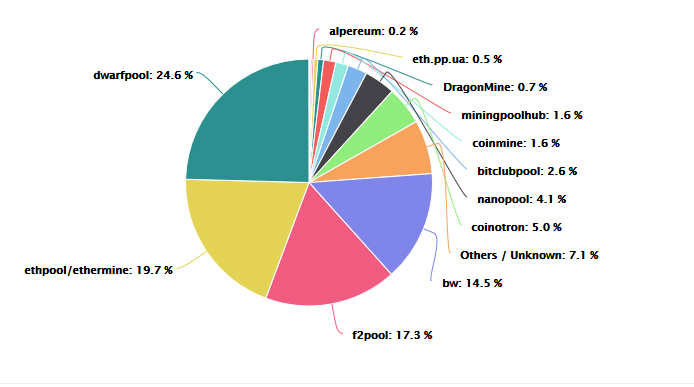Almost 60% of Ethereum Miners Have Upgraded to Support the Hardfork
After more than a month of raging debate, Ethereum’s community has reached a conclusive decision. Ethereum will Hardfork.
Some tense hours yesterday raised the prospect of a protracted fight, but, Ethpool cleared any doubt by announcing they are to support the hardfork:
“[A]ccording to our voting policy stated in the announcement, we will support the hard fork.”

Dwarfpool, Etherpool/Etherminer, Coinotron, Nanopool, MiningPoolClub, Alpereum and Eth.pp.ua support the fork in certain terms. In combination, they control about 60% of the hashrate, ensuring the chain they work upon is the longest and winning chain. F2Pool and BW, which control around 30%, will now most likely upgrade to the hardfork client as will all other miners.
Failure to upgrade for a non-pool miner or a pool operator has financial consequences as you will find yourself in a deprecated chain which has as good as no support from any major exchange. Financial losses are therefore likely as the losing chain has no market of significance and thus no value.
All miners will therefore now probably upgrade as it is certain the vast majority of the hashrate supports the hardfork. To ensure it all goes smoothly, all node operators should urgently upgrade and retain the default option. Any node operator who flags the non-hardfork option or does not upgrade will simply be cut off from the network as now all miners will probably be on the fork chain, all exchanges, thousands of nodes, and all of them have the support of 87% of Ethereum holders.
In the circumstances, the hardfork, which is in just a few hours, will likely be a non-event as the decision is now conclusive and certain. The vast majority – users who do not run a node, such as mist, geth or parity, and pool miners – do not need to undertake any action, but no one should transact for one hour after block 1,920,000 or, if you do transact, make sure to wait for an excessively large number of confirmations. If you are a node operator or a non-pool miner you, of course, need to upgrade urgently.
With the code now done, miners upgraded, nodes upgraded, the community reaching a conclusive decision, all eyes are on block 1,920,000 which is expected in about 24 hours. If it all passes as if nothing happened, mainstream trust in Ethereum will probably increase considerably as the world sees a functioning and pragmatic community at the cutting edge of blockchain tech and governance which upheld all our values of punishing thieves, deterring any future thefts, at least at a massive scale.
Ethereum, therefore, may attract even more support from mainstream businesses which are already choosing Eth over other blockchains due to its ability to scale and its welcoming attitude towards non-currency uses of blockchain tech as well as showing that it has safety measures in extreme circumstances.
Featured image from Shutterstock. Chart from EtherChain.